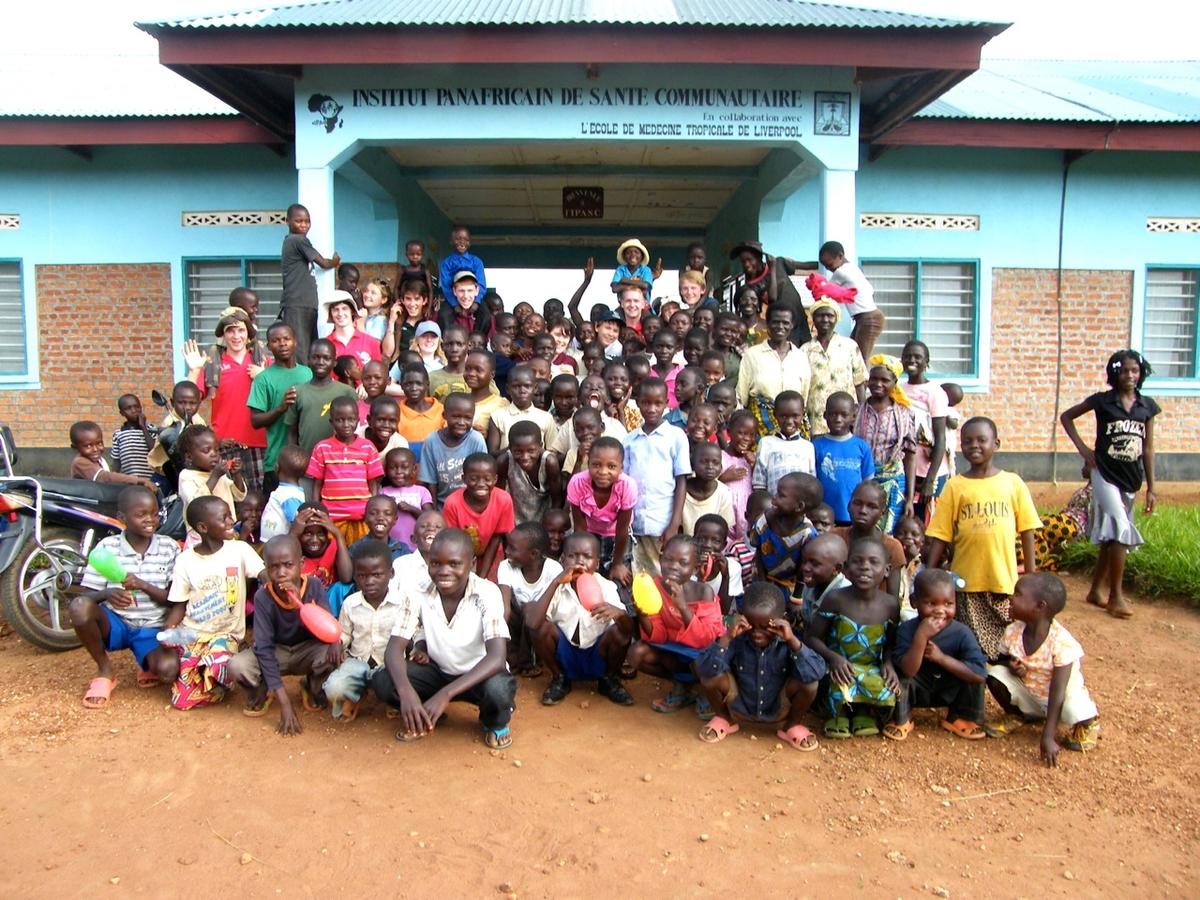
Amuda Baba Dieu-Merci, Executive Director of Institut Panafricain de Santé Communautaire et Medecine Tropicale (IPASC), visited LSTM to talk to staff and students about the maternal health work of IPASC and the human resources challenges faced in the Democratic Republic of Congo (DRC).
Poverty and disease in DRC is amongst the worst in the world, following a devastating war (1998-2003) that plunged the country into a humanitarian crisis causing almost six million deaths, many from treatable diseases, and saw rape widely used as a weapon. Despite a peace deal instances of rape have continued and resulted in widespread HIV and AIDS. In particular Eastern DRC is described as ‘the world’s worst place to be a woman’. Sexual violence is rife, with most mothers giving birth outside of health facilities, sometimes resulting in fistula – the most devastating and serious of all childbirth injuries. Maternal mortality rates are amongst the highest in the world.
Maternal and newborn health services tend to be based in urban areas, leaving women in rural areas isolated and subject to complications. Rural services are poorly equipped and under-supported, there is a real need for improved emergency obstetric care.
Founded in 1992, by the late Rev Dr Patricia Nickson OBE, IPASC improves community health in DRC through research and training to improve maternal health and combatting malaria, HIV & AIDS. The IPASC Safe Motherhood Service works to improve the health of mothers and children, by preventing sexual violence, reducing cases of fistula, and promoting family planning. Central to the services offered by IPASC is the training of community—based midwives, to provide home visits to pregnant women, arrange screenings, emergency obstetric care and promote family planning in schools. Working at community level to encourage those communities to identify potential community-based midwives, to receive this training.
Identified by WHO as having a critical shortage of qualified health workers, DRC has just one physician per 10,000 people, with even fewer in rural areas. Amuda explained that central to this problem is the deployment of trained health workers not meeting the needs of rural communities. Health workers often prefer to be based in urban areas, leaving rural areas with an understaffed poorly trained health workforce.
IPASC is conducting capacity building training of community health workers to help them identify women with fistula in the community and organise the necessary surgery. Additionally staff are able to provide psychosocial support and socio-economic community reintegration, such provision of livestock, to allow women to become independent and help themselves and other women in their community. Resulting in more women from rural areas being able to access health services.
LSTM has a longstanding collaborative relationship with IPASC, with Amuda achieving his Masters in Community Health here at LSTM, providing him with the platform to become Director of IPASC. The work of IPASC is contributing to an understanding of re-building womens health services in other post-conflict settings. A partnership, which sees IPASC, as an affiliated organisation, working with the LSTM-led ReBUILD Consortium, which conducts research into the health systems of post conflict countries. IPASC is also a partner within the LSTM coordinated Collaboration for Applied Health Research and Delivery (CAHRD), a global network dedicated to the transformation of health systems to improve the health of low and middle income populations.
